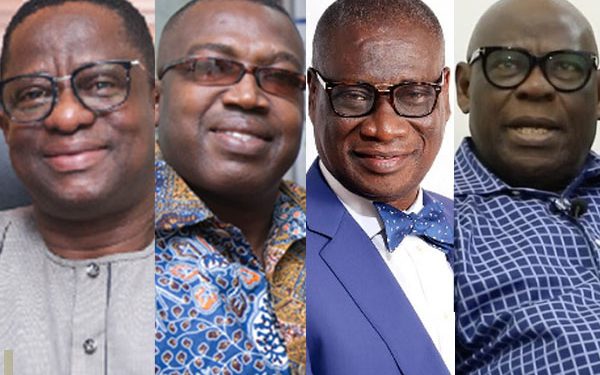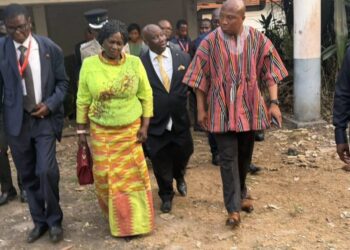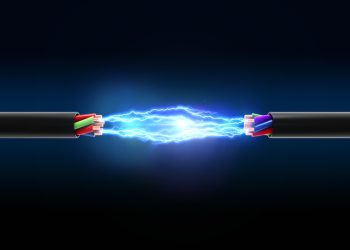A February 2019 letter has emerged from the Energy Commission against the US$2 billion Genser Energy Ghana Limited “sweetheart deal” in which the Ghana National Petroleum Corporation (GNPC) buys gas at US$7.9/ mmbtu but sells it to Genser US$2.79/mmbtu.
The letter dated 17th February 2019, was written by Dr Ben K. D. Asante, now Chief Executive Officer (CEO) of the Ghana National Gas Company (Ghana Gas), who is being accused of sponsoring the negative press that the Genser-GNPC unconscionable is facing.
Dr. Asante, had written the letter in his capacity as Director of Technical Regulations at the Energy Commission rejecting the special treatment that Genser wanted from the Akufo-Addo government at a time when the Volta River Authority (VRA) and others were buying the same gas for US$7.9/ mmbtu.
But a year after the Energy Commission rejection of discount arrangement for Genser, GNPC under the management of Kofi Kodua Sarpong (KK Sarpong) “stepped into the fray with the $2.79 (per MMBTU) price deal, obviously at a steep discount from the regulated price then of $6.50”.
Bright Simons and Ben Boakye of ACEP argue that the $2.79 (per MMBTU) “was not sweet enough. So, in July 2021, GNPC upped the ante and offered Genser a deal whereby it will further reduce the gas price to $1.72 if Genser built more pipelines that GNPC might in the future use to transport gas (thereby bypassing the Ghana Gas network)”.
Genser owned which is owned by a top financier of the governing New Patriotic Party (NPP) Nana Osae Nyampong; the biological father of Nana Dokua Asiamah Adjei, the NPP Member of Parliament (MP) for Akuapem North constituency, has since been paying next to nothing for the country’s natural gas.
But the ties that bines the various actors in the deal, goes beyond the ruling political party to their business interests and family’s generational wealth of the Akufo-Addo family.
Last week Saturday, the government team at the Ministry of Energy, refused to speak about the goodness of the Genser deal on the platform of the Joy FM’s Newsfile programme and left the debate for Bright Simons of IMANI-Africa and Benjamin Boakye of African Centre for Energy Policy (ACEP).
Deputy Energy Minister, Mohammed Amin Adam of the Karaga Constituency in the Northern Regions, did not take in the part, although Dr Amin and his former boss, John Peter Amewu, are neck deep in the transaction with some of the communications of GNPC addressed to him directly as Deputy Minister 0n the deal.
Dr. Asante’s letter against Genser, had referenced one dated 29th January 2019 from the then Chief Executive Officer of the Ghana National Gas Company.
It argued that “whilst there has been some discussions about providing some strategic gas consumers with a discounted price, we are not aware of any decision having been taken on the subject. Particularly, to the best of our knowledge, no entities have been designated as “strategic”, no discounted price determined, and no mechanism for financing the discount has been determined. In the light of the above, we are unable to provide or suggest a waiver for Genser or any other entity from paying the WACOG”.
Dr. Asante, is this morning billed to appear before the Mines and Energy Commission of Parliament to respond to some questions on the transaction in his current capacity as the Chief Executive Officer of the Ghana Gas, the institution he wrote against the special treatment that Genser wanted four years ago.
The content of the letter follows denials from insiders on the government’s Economic Management Team (EMT) led by Vice-President Dr. Mahamudu Bawumua that a directive was given in 2020, to stop Ghana Gas from selling gas to power companies.
Ex-Energy Minister John Peter Amewu and Dr. KK Sarpong, had exchanged letters in which they cited an EMT directive. But The Herald’s sources on the EMT insist the EMT has not given any directive for gas to be sold to Genser or any other company below US$7.9/ mmbtu.
This paper learnt that sometime in April 2, 2019, the Energy Ministry and the Committee on Review of Gas Market Pricing, made a presentation to EMT and proposed a gas price of US$5.61mmbtu, to reflect a reduction of US$1.68mmbtu on the Public Utility Regulatory Commissions (PURC) 2018 gas price of US$7.29mmbtu to Independent Power Producers (IPPs) in order to mitigate the effect of gas prices on electricity tariffs.
But at the said meeting, no company by Genser was mentioned and no decision was issued. It has been revealed that the meeting and presentation was purely an update presentation to EMT on how far the Ministry and Committee were exploring ways to reduce electricity tariffs by means of reducing the cost of gas prices.
Last Tuesday, MPs on the Mines and Energy Committee of Parliament chaired by Samuel Atta Akyea, met officials of GNPC, but members emerged out of the meeting with conflicting positions on the transaction on the responses from GNPC which has its Chief Executive, Opoku Ahweneeh Danquah, a relative of President Nana Akufo-Addo.
Samuel Atta Akyea, is a member of the Akufo-Addo family, who is mentioned to be profiting from the Genser deal through a company called West Coast Ghana Gas Limited. Under Dr KK Sarpong, West Coast Ghana Gas Limited was said to be making a whopping US$5 million annually, which has ballooned to US$12 million, since Opoku Ahweneeh Danquah, a grandchild of JB Danquah, took over from Dr Sarpong, whom had fought with for years when he was deputy.
Opoku Ahweneeh Danquah nicknamed “Obunda” as a Deputy CEO in charge of Technical Operations, had drawn his powers from the Presidency and been in a turf war with his former boss, Dr Kofi Koduah (K.K) Sarpong, condemning many of the things that Dr. Sarpong did, but his conduct on the Genser transaction, appears to support Dr Sarpong, at least on something.
West Coast Ghana Gas Limited, The Herald learnt holds the President’s family interest. It was brought into the deal under the tenure of Dr Sarpong to take over roles that the GNPC staff were playing. Ghana National Gas Company (GNGC) was performing these roles and collecting the market rate of US$7.9/ mmbtu without any difficulty, but government had it taken from it on the protest from Genser and overnight the price of the gas was reduced to US$2.79/mmbtu and West Coast Ghana Gas Limited, became an intermediary between Genser and GNPC.
It is not clear, if there was any competitive bidding process to bring onboard West Coast Ghana Gas Limited.
Some have sought to link West Coast Ghana Gas Limited to President Akufo-Addo’s younger brother; Edward Akufo-Addo alias “Bumpty” as well as their cousin Gabby Asare Otchere Darko, but this is yet to be confirmed.
There are reports that the company was first registered in Ghana with the Registrar General’s Department, but has since been moved to Dubai in the United Arab Emirates to give it an international image. West Coast Ghana Gas Limited, according to insiders, currently has two former employees of the Volta River Authority (VRA) namely; King Taylor and Emmanuel Johnson, as part of management.
“They are receiving 2 million dollars a month from the gas nominations component of the price paid for gas by off takers”.
Meanwhile, IMANI Center for Policy & Education (IMANI) and the Africa Center for Energy Policy (ACEP) have been explaining what they meant by describing the transaction as a “sweetheart deal” between GNPC, Ghana’s national oil company, and Genser, a US-based Ghanaian-owned company that recently announced that it has raised $425 million to expand its gas-to-power facilities in Ghana.
“Ghana has three main gas fields, all offshore, from which natural gas is pumped through an undersea pipeline to the shore. From the offshore receiving facilities, gas is distributed, in principle, according to the country’s Gas Masterplan.
“The gas is produced by private oil and gas companies of the likes of Tullow, Eni, Vitol and Kosmos and aggregated by GNPC, in its capacity as Ghana’s main upstream state interest operator, for sale to other entities. Ghana Gas is the primary wholesale buyer of the gas and the main processor. Currently, it is also the largest distribution infrastructure operator, though that role has been designated for state-owned BOST. BOST is unable to effectively invest in the pipeline complex required for it to play this distribution utility role due to financial constraints.
“At every level of the value chain, there are regulators that are supposed to make sure that a level playing field exists; and that strict compliance with law and policy, observance of standards and the political and economic interests of the country and its citizens are the hallmarks of the country’s budding gas industry.
“Clearly, either all these regulators are asleep or they are complicit in the brazen ongoing heist of public resources evident in the GNPC – Genser sweetheart deal.
Genser is one of 15 main thermal power producers in Ghana. A “thermal power” producer uses fossil fuels like gas and crude oil to generate electricity for sale to customers. Unlike most power producers who sell the power through the GRIDCO-managed national grid, Genser locates its power plants close to its customers and transmits directly as an “embedded generation operator”. It is one of two main companies doing this in Ghana, the other being Trojan.
A year after the Energy Commission rejection of any discount arrangement for Genser, GNPC stepped into the fray with the $2.79 (per MMBTU) price deal, obviously at a steep discount from the regulated price then of $6.50. But that was not sweet enough. So, in July 2021, GNPC upped the ante and offered Genser a deal whereby it will further reduce the gas price to $1.72 if Genser built more pipelines that GNPC might in the future use to transport gas (thereby bypassing the Ghana Gas network).
ACEP and IMANI were scandalised by these revelations because even large energy producers and wholesale buyers of gas in Ghana do not get such deals, despite fuel being the biggest contributor to the cost of power businesses and households face in Ghana.
The biggest power producer in Ghana, VRA, for instance, attributes 60% of its total costs to fuel when breaking down the electricity prices it is allowed by the PURC (the main pricing regulator) to charge. Its cost of gas is the regulated price of $6.08 (changed to $5.99 by the regulator in 2022). Under what circumstances then can a smaller power producer with far less impact on the economy, without any of the social constraints faced by VRA to service poor and rich alike, get gas at a price that is roughly 1/4th what the principal public utility is charged?
Even the main wholesaler of gas in Ghana, Ghana Gas, which on-sells/retails to the power industry, gets its gas at $5.4. Due to rampant under-recoveries in the power sector (implicit subsidies imposed by the government, which it nevertheless refuses to pay), it struggles to get paid by the utilities and therefore rack up debts to the upstream suppliers.
GNPC’s own calculations suggest that securing gas costs it $7.9 per MMBTU. It has therefore tried to persuade the pricing regulator, PURC, to increase gas prices above the $5.99 the latter has set for the downstream power sector. How can a commodity that has been averaging $8 per unit in recent times, and which the seller claims costs it $7.9 to produce, be sold at $2.79 or, even worse, prospectively at $1.72?
GNPC’s Bogus Explanations
Following the ACEP-IMANI exposures, GNPC and the Energy Ministry went on the offensive this week. At an ongoing parliamentary enquiry, GNPC did it best to obfuscate the issues, and suggested all manner of reasons why Genser deserves to pay between 60% and 75% lower than virtually every other gas buyer in the energy industry.
First, it cited the fact that Genser is on the “industrial development tariff”, which at $4.20 per unit is lower than the regulated price (“weighted average cost of gas” – WACOG) set by the regulator. Next, it insisted that Genser is one of a few companies that pays its bills on time and does not rack up arrears and thus deserves some back-patting.
Finally, and most importantly, it rolled out the Rolls-Royce of all justifications: Genser uses its own pipelines to transport the gas it buys and so deserves a rebate on that account alone. Even more vitally, Genser has given GNPC the right to use gas pipelines it is still building in the future to transport gas for free and thus deserves further discounts in what amounts to a barter trade. None of these arguments hold water; some are plain lies.
The Sham “Industrial Development Tariff (IDT)”
As already pointed out, the Energy Commission rejected similar arguments about the role of Genser in 2019. There is nothing exceptionally “industrial” about what Genser is doing. It is not facilitating manufacturing or doing manufacturing on its own, unlike other IDT beneficiaries. The agreements it has with GNPC and Ghana Gas do not impose any requirement for it to use the gas for industrial applications or purposes. It virtually all the power it generates with the discounted-price gas to mining companies, which are in the “primary extraction” sector.
It is merely undercutting other power producers, who could easily meet the demand of the mines, by buying gas for cheap. Recall that for gas power producers, raw gas is roughly 60% of their total costs. There is absolutely no strategic, policy or developmental reason for Ghana to discount gas prices for a commercial power producer to undercut its rivals in selling power to rich gold mines. Companies that are focused strictly on delivering power to Ghana’s industrial parks, export processing zones, and manufacturing corridors do not get these sweetheart deals.
The Hollow Pipeline Argument
It is not correct, as being canvassed by GNPC, government and Genser PR agents that only Genser has invested in private pipelines for receipt and onward transmission of gas. Companies like Aksa, Trojan and Early Power have all gone through the necessary regulatory screening to construct pipelines to convey gas to their plants. Ghana Gas has the largest pipeline complex in the country. Roughly $1.6 billion of equity and public/ publicly-guaranteed debt have gone into this huge infrastructure base. All the offshore pipelines that bring the gas from the sea to land (the most expensive form of gas transmission) belong to Ghana Gas. Yet Ghana Gas is paying an average wholesale price of about $5.4 per unit for the gas it retails.
At any rate, as argued at length in the previous essay, the value of gas pipeline transmission is well established. Ghana Gas provides clear local benchmarks for how to value the contribution of pipeline infrastructure to cost buildup.
The PURC has set a regulated threshold price of $1.288 per MMBTU. And there are many global benchmarks (some of which were shared in the previous essay). If GNPC wishes to give Genser a rebate for transporting the gas it buys over the small proportion of distance covered by its own pipelines versus the much greater extent of public pipelines used in bringing the gas from under the sea, it can do so rationally and transparently. Such an approach will not generate a rebate of more than $0.5 per unit.
As for the planned use of Genser’s pipelines for free by GNPC, the proposition has been cited as a justification since early 2020. GNPC has not transporting any volume of gas through said pipelines. Some of the use cases for that arrangement, like the bauxite refinery at Nyinahin, are highly futuristic. It is plainly ridiculous to be granting massive discounts on the basis of hazy, unrealised, future barter arrangements. More bizarrely, the agreement signed between GNPC and Genser does not bear out the “free” thesis. Genser intends to charge a “gas compression fee”:
Does Genser pay on time?
The short answer is “no”. As of the end of December 2021, it owed roughly 50% of its due obligations to GNPC, in the amount of $4.6 million. In the first half of 2022, as of June 30th, Genser owed GNPC more than $3.24 million. Whilst reconciliation is still outstanding for Q3 2022, that debt keeps rising and may hit $5 million. Genser has a track record of owing suppliers. It recently had to pay damages to Vitol in a London court for failure to pay for LPG/NGL (mostly propane) deliveries made to it during the lean years of 2018 and 2019 when it had not yet secured its sweetheart deal with GNPC and was paying in excess of $7 per unit of gas to private suppliers.
Worst of all, it gets Worse
Imagine the horror of IMANI and ACEP analysts when they discovered that all the time GNPC and Genser PR agents were seeking to justify Genser’s $4.2/MMBTU IDT (“industrial development tariff”) and the various rebates as sensible commercial terms, the company was neither paying $4.2/MMBTU nor, as some of its spokespersons have said, $3.5.
Genser has not even been paying the contract price of $2.79. According to reconciled GNPC accounting data, Genser has in fact been paying, wait for it, $1.14! Essentially, a giveaway price.
Comparing how much Genser pays with the rest of the industry, including those manufacturers that actually qualifies for the IDT rate as a result of their playing critical roles in resurrecting strategic dying industries like ceramics, throws into alarming relief the true scale of the mess. Clearly, Genser is the golden-haired boy-wonder of the power consuming world. It pays nearly 6 times LESS than the main public power utility and nearly 4 times LESS than companies that are actually using gas to drive Ghana’s industrialisation.
The Big Picture
Whilst we have talked about the risk of Ghana losing $1.5 billion if GNPC continues to sell gas to genser at the contract price (based on the contract gas volume of more than 328 million MMBTU), it is important to now clarify that Ghana has already lost considerable amounts of money. Selling gas at $1.14 to Genser instead of the $7.9 it costs GNPC to acquire the gas or the $6.08 set by the regulator for the relevant period means losses of between $4.97 and $6.76 for every unit of gas sold. In 2021, Genser bought more than 7 million MMBTU of gas from GNPC implying a loss of between $34 million and $45 million already incurred, even after making provision for a fair transmission rebate for the use of Genser’s own pipeline. By the end of this year, $100 million in losses would have already accrued.
At a time when Ghana is seeking a $3 billion IMF bailout due to a debt crisis worsened by mounting energy sector liabilities of more than $2 billion a year in recent estimations, it is both unconscionable and mindboggling that GNPC can afford to lose nearly $100 million on a single contract in just two years or be willing to lose as much as $1.5 billion over the contract’s lifetime. To underline the fishiness and level of impunity, consider that Genser started enjoying these discounts EVEN BEFORE GNPC signed the new agreement with the fresh discounts based on the futuristic pipeline barter trade. Here is a January 2021 trade (the agreement was signed in July 2021).
Clearly, the Parliament of Ghana which now claims to be investigating this matter has its full credibility on the line as Ghanaians await its findings.










Discussion about this post